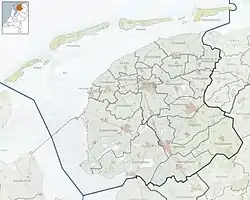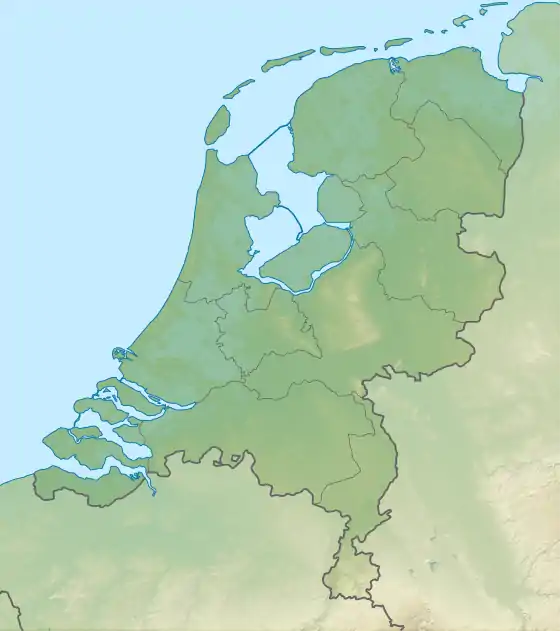Wouda pumping station
The D.F. Wouda Steam Pumping Station (ir. D.F. Woudagemaal) is a pumping station in the Netherlands, and the largest still operational steam-powered pumping station in the world. On October 7, 1920 Queen Wilhelmina opened the pumping station. It was built to pump excess water out of Friesland, a province in the north of the Netherlands. In 1967 the 47 years old coal furnaces were converted to run on heavy fuel oil. It has a pumping capacity of 4,000 m3/min (1,100,000 U.S. gal/min). The pumping station is currently used to supplement the existing pumping capacity of the J.L. Hooglandgemaal in Stavoren in case of exceptionally high water levels in Friesland, which usually happens a few times each year.
| UNESCO World Heritage Site | |
|---|---|
_(cropped).jpg.webp) | |
| Official name | Ir.D.F. Woudagemaal (D.F. Wouda Steam Pumping Station) |
| Location | Tacozijl, Lemsterland, De Fryske Marren, Netherlands |
| Criteria | Cultural: (i), (ii), (iv) |
| Reference | 867 |
| Inscription | 1998 (22nd session) |
| Area | 7.32 ha (18.1 acres) |
| Buffer zone | 20.68 ha (51.1 acres) |
| Website | www |
| Coordinates | 52°50′45″N 5°40′44″E |
 Location of Wouda pumping station in Friesland  Wouda pumping station (Netherlands) | |
-4 tandem compound, reciprocating steam engines, with poppet valves:
- Single acting high pressure cylinder, 0.5 m diameter.
- Double acting low pressure cylinder, uni-flow exhaust, 0.85 m diameter.
- Stroke: 1.0 m
- 500 Horsepower, 373 kilowatt
-8 horizontal, double suction, fabricated, centrifugal pumps: 500 m³ per minute, 125,000 GPM, 180 MGD:
- rotational speed: 95 to 115 rpm, impeller diameter 1.70 m.
Since 1998 the ir. D.F. Woudagemaal has been listed on the UNESCO World Heritage Site list.
The station is open for visitors and tours are given regularly.
Location
The pumping station is located at Tacozijl just outside Lemmer
 One of the steam engines running
One of the steam engines running Seaside face of the building
Seaside face of the building
 Aerial view
Aerial view
External links
 Media related to Ir. D.F. Wouda-gemaal at Wikimedia Commons
Media related to Ir. D.F. Wouda-gemaal at Wikimedia Commons- Official website
- Visit site in 360° panophotography